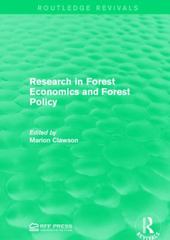Question
In an article on the Australian Financial Review, economist Warren Hogan argues that the government is right to scale back the JobKeeper support in March
In an article on the Australian Financial Review, economist Warren Hogan argues that the government is right to scale back the JobKeeper support in March 2021.
Article: Stick to JobKeeper time frame to boost growth
Australia's fiscal policymakers are right to stick to their message that pandemic-level support for jobs must eventually end, and to resist pressure to keep those policies in place for longer, according to veteran economist Warren Hogan.
When the federal government announced late last year that it would start to scale back support for the jobs market, it was unsure how the economy would evolve.
"These are emergency policies ... and you need to get out of them when they are not needed," says Warren Hogan, pictured at his home in Killara, Sydney.Dominic Lorrimer
But the economy is on the path to recovery from its first recession in almost 30 years, with unemployment falling to 6.8 per cent in November, and GDP rebounding 3.3 per cent in the September quarter.
"They were really brave back in October by sticking with the March timeline, but it looks like the right thing," said Mr Hogan, who worked at NSW Treasury, Credit Suisse and ANZ (as chief economist) before starting his own economic advisory business.
JobKeeper and JobSeeker were extended last year, but in a scaled-back form. JobKeeper runs until March 28. JobSeeker was reduced on January 1 and the supplement is legislated to end in March.
JobKeeper and higher payments for JobSeeker are policies for times of crisis, he pointed out, and should not be expected to continue indefinitely. "These are emergency policies - whether they are monetary or fiscal - and you need to get out of them when they are not needed."
The government put in place its fiscal support packages as the Reserve Bank slashed interest rates, supplied cheap funding to banks, and adopted unconventional policy measures to prop up the economy during the pandemic.
While such measures are essential in an emergency, enduring super-easy policy can, in the long terms, lead to a weaker economic performance than would otherwise be the case, Mr Hogan argued.
It hurts the turnover of capital for example, he said. "I think it's having a big impact on inequality, I think that has a social dimension, and you can lose the broader support for the market economy in the citizenry."
If the [housing] market starts really building up some steam ... then you bring APRA and macro prudential into play.
Warren Hogan, economist
He acknowledged that it was not always easy to walk back from emergency settings, especially for a small, open economy such as Australia, whose policy efforts are dwarfed by those of other central banks. Many were also trying to counter low consumer price index inflation, in a world of increased technology and globalisation, with easy monetary policy.
"Unfortunately, Australia ia a price taker in a globalised system," Mr Hogan said.
One factor that could prompt policymakers - at least in Australia - to return to normal settings was a strong housing market.
Ultra-low interest rates were being rapidly repriced into mortgage rates, Mr Hogan said. Competition between mortgage lenders was also fierce, leading to more downward pressure on mortgage rates - and "the housing market is moving hard" in response.
After a period of weakness during the worst of the pandemic, national house prices were on track to more than recover the losses suffered, and hit a new high by February 2021 if the current level of growth is maintained.
Mr Hogan said that the housing market upswing was different from any he has seen in the past 20 years, because owner-occupiers were leading the rebound.
The pandemic had played a role in this tend, with "people thinking that they want to own a house rather than an apartment because of work from home, that kind of thing".
It's the investors - a prominent feature of the market for the past 20 years - who were missing in action, but Mr Hogan was confident they too would return. With no interest available on deposits and equities at highly valued levels, "investors will be back", he predicted.
"There's a lot of uncertainty around rents. There are a lot of mortgages in deferral, and investors are a big part of that," Mr Hogan said.
But the role of rent deferrals and lending deferrals in the housing market would be diminished beyond March, "and we will get a better understanding of where things are going to sit, and investors will come back unless there's some disaster".
If investors returned to take the market to "a whole new level", that would trigger macro prudential action.
"If the market starts really building up some steam in the first half of [2021] - and I think that's a 10 per cent to 15 per cent market - if we start to go above 10 per cent, then you bring APRA and macro prudential into play".
Questions:
1.Summarize the main reasons put forward by Hogan.
2.In light of the current economic outlook and the Covid pandemic, do you agree or disagree with his argument? Explain your answer.
Step by Step Solution
There are 3 Steps involved in it
Step: 1

Get Instant Access to Expert-Tailored Solutions
See step-by-step solutions with expert insights and AI powered tools for academic success
Step: 2

Step: 3

Ace Your Homework with AI
Get the answers you need in no time with our AI-driven, step-by-step assistance
Get Started


